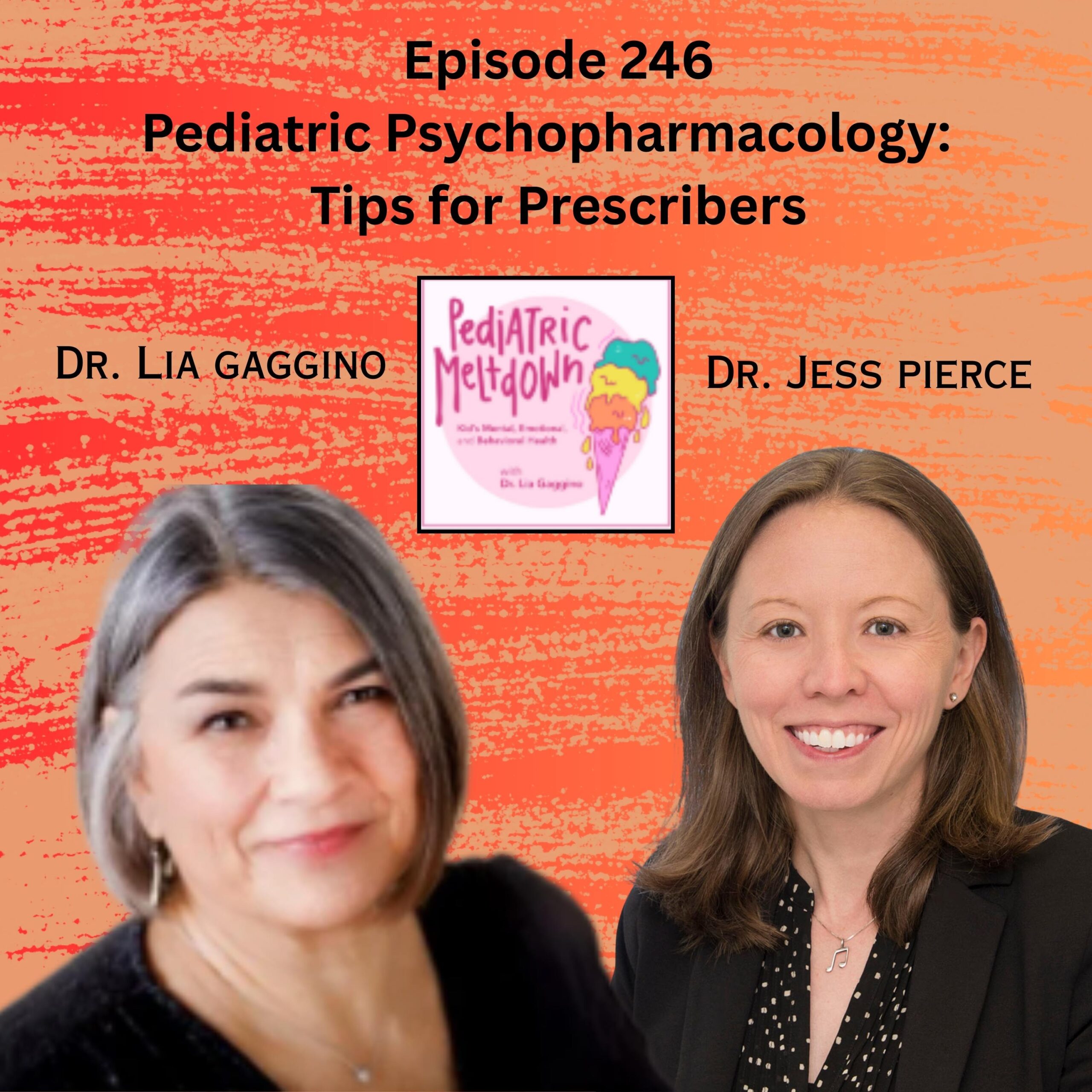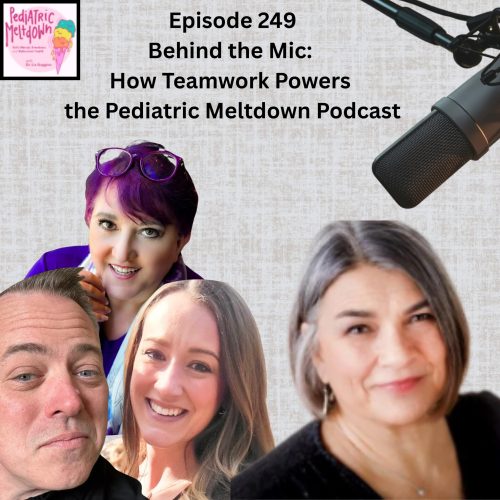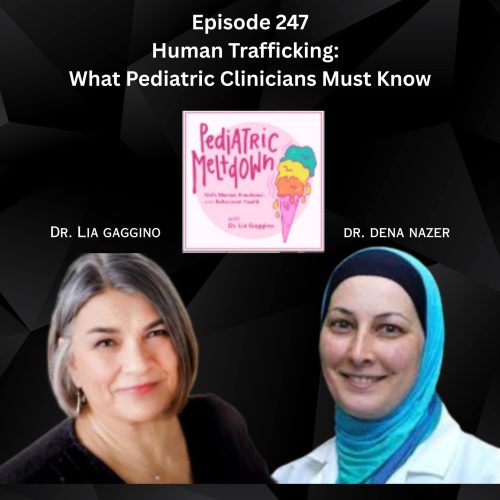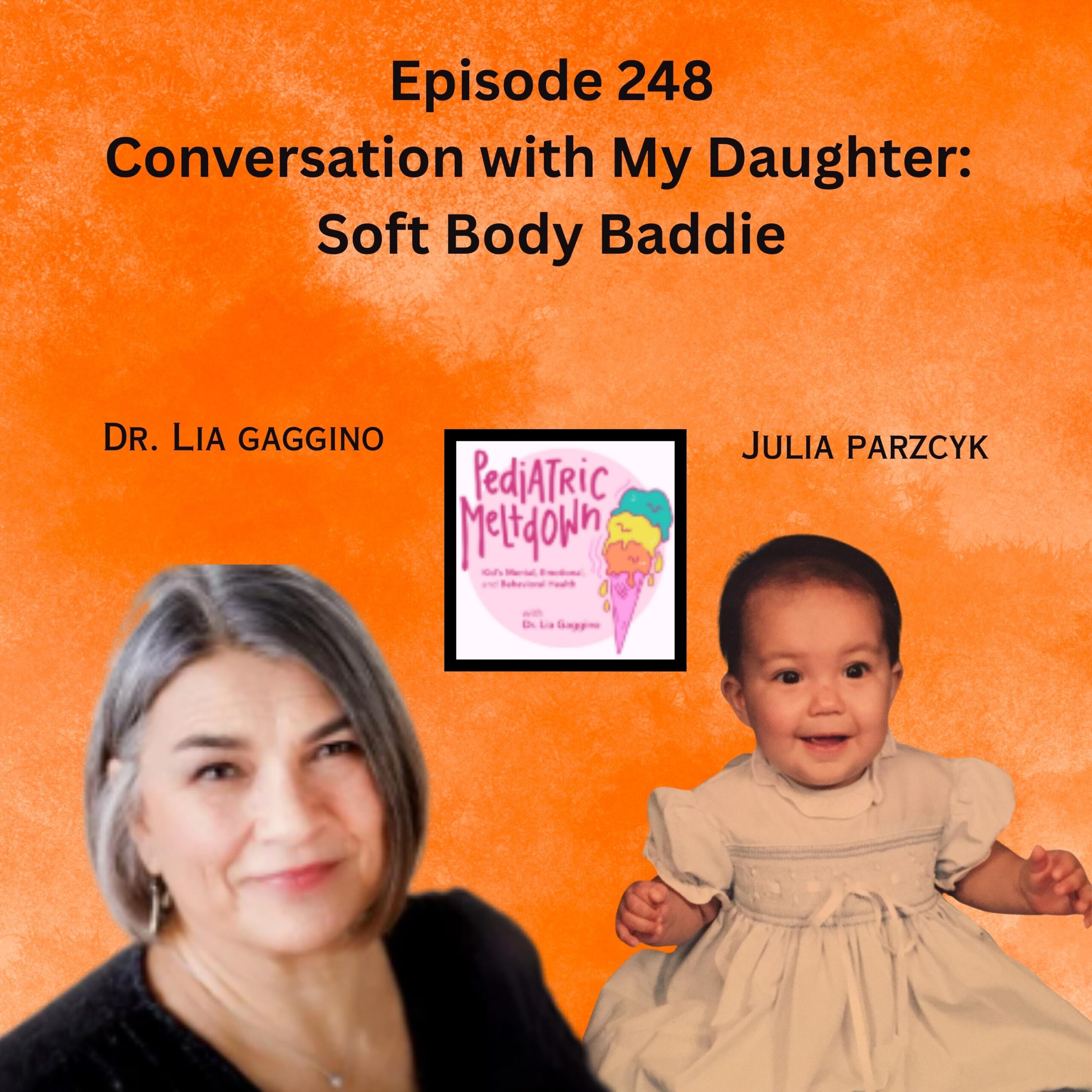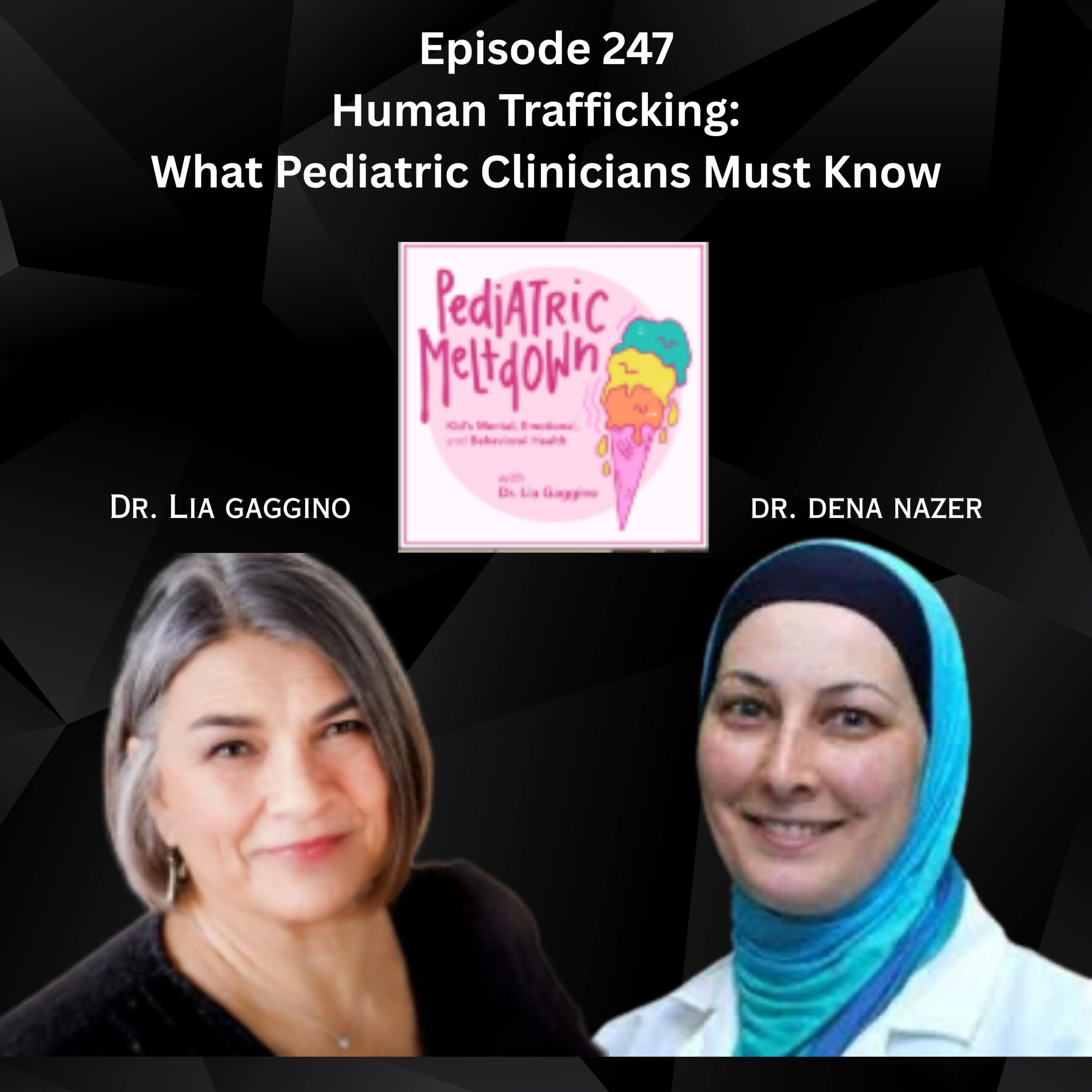Pediatric Psychopharmacology: Tips for Prescribers
Can medication truly transform the landscape of pediatric mental health, or are we oversimplifying the complexities of growing minds?
In this episode of Pediatric Meltdown, Dr. Lia Gaggino welcomes Dr. Jess Pierce, a hospital-based child psychiatrist whose expertise bridges the worlds of pediatrics and mental health, especially for children in rural areas. Unraveling the fascinating, unexpected history and mechanisms of antidepressants, this episode offers an honest, roadmap for pediatricians navigating the maze of SSRIs, SNRIs, risks like serotonin syndrome, and difficult conversations about side effects.
Discover why family history, patient buy-in, and transparent communication are pivotal to successful treatment—and why prescribing for young people demands a delicate blend of science, art, and empathy. This conversation will change the way you see—and approach—medication in kids’ mental health.
[00:00:02] Exploring Pediatric Psychopharmacology’s Roots
- Tracing the unexpected origins of antidepressants, including how tuberculosis and hypertension treatments led to modern psychopharmacology
- The monoamine hypothesis: understanding the neurotransmitter focus in early depression treatments
- The move beyond serotonin, dopamine, and norepinephrine: new research on neurobiology, neurogenesis, and stress response
- Prozac’s arrival and its impact in reshaping the treatment landscape for pediatric mental health
[00:06:49] SSRIs in Practice: Similarities, Differences, and Selection
- All SSRIs share rapid absorption, high protein binding, and similar side effect profiles—but key differences can matter
- Important reasons to avoid Paxil and to use Lexapro over Celexa, particularly due to side effect burdens
- Nuanced considerations: matching specific SSRIs to individual patient needs, such as Prozac’s activating profile for low-energy depression
- Practical dosing strategies: the art of balancing “start low and go slow” with the urgency to help suffering children
[00:16:43] Navigating Risks, Side Effects, and Patient Monitoring
- The truth behind the Black Box Warning: clarifying risks of suicidal ideation vs. the dangers of untreated depression
- Why regular, open conversations with families about medication side effects—especially sexual side effects in teens—build trust and adherence
- Recognizing and managing serotonin syndrome: how to spot symptoms and when emergency intervention is needed
- Identifying high-risk drug interactions, including situations with migraine or neurology medications
[00:26:58] From SNRIs to the Five-Step Prescribing Approach and Beyond
- How SNRIs differ from SSRIs in action, side effects, and indication—especially in pain syndromes or where activating effects are desired
- The use of Wellbutrin as an alternative with fewer sexual side effects, and cautions for seizure-prone populations
- Strategic guidelines: the five-step approach to medication choice, considering patient history, family response, symptoms, buy-in, and comorbidities
- Critical cautions with genetic testing and the limitations of using these results to guide first-line medication choices
[00:32:58] Dr Lia’s TakeAways
Resources Mentioned:
- Dr. Pierce’s PPT on Pediatric Psychopharmacology Hello! Here’s the link to the slides: Psychopharm PPT
- AACAP Facts for Families – Medication guides, anxiety and depression info sheets
- National Alliance on Mental Illness (NAMI) – Patient and family educational resources and peer support
- MC3 Psychopharmacology Reference Card – Quick reference for prescribers
Here are some more episodes you may like
https://pediatricmeltdown.com/episodes
- Raising Good Citizens Through Conscious Parenting
- Immigrant Children and Families
- Preventing Youth Suicide
- The Art of Medicine
Tweetable Quotes:
“So I myself always dose Zoloft at bedtime because if my patients are gonna have an effect on sleepiness or alertness, it tends to be the former and so I dose it at bedtime.”.. Dr. Jess Pierce on why doctors dose zoloft at bedtime
“Having those conversations really open openly at the beginning, I think can make a big difference in terms of how they hang in there for the treatment.”… Dr. Jess Pierce on breaking medication stigma in child mental health
**TRANSCRIPT AVAILABLE UPON REQUEST**
SUBSCRIBE & LEAVE A FIVE-STAR REVIEW and share this podcast to other growing entrepreneurs!
Get weekly tips on how to create more money and meaning doing work you love and be one of the many growing entrepreneurs in our community. Connect with me on LinkedIn; https://www.linkedin.com/groups/12656341/ or on Instagram or our website at www.lifeaftercorporatepodcast.com .

